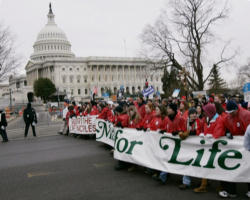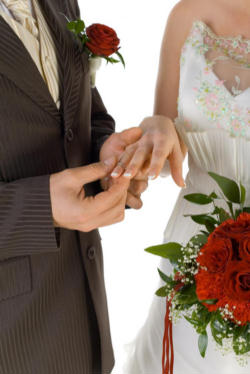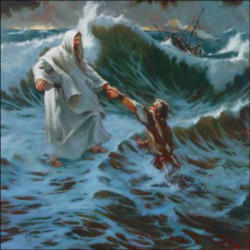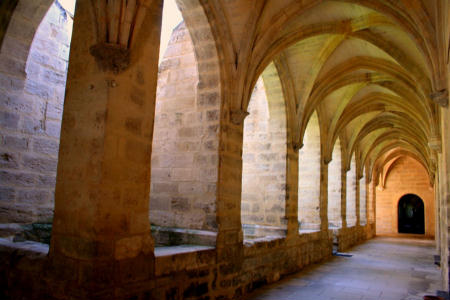After Labor Day, the US Presidential campaign of 2012 will move into high gear. Clearly, this is one of the most important elections of my lifetime. The economy is in a free fall and the sense of fear in the United States is palpable. A majority of people have lost confidence in our elected leaders. The moral decline in the Nation is obvious to anyone who has any moral compass left – after decades of such a decline. the connection between our economic and our moral decline is similarly obvious to anyone who understands the integrated human person and the social order.
As a Catholic Christian who has labored side by side for decades in building alliances with protestant evangelicals, other Christians, other people of faith and all people of good will on the issues and concerns which matter most, I know that this is the time the pundits begin to specualte about the “Catholic Vote” and which candidate will secure such a vote. I have written for many years as to whether such a “Catholic vote”, in the sense of a discernible “bloc” of voters, actually even exists. The fact is Catholics are very diverse in many political matters which call for prudential judgement. However, with the growing renewal in the faith of many Catholics and the consequential growing awareness of what their Church actually teaches, we may be reaching a point where such a ‘Catholic Vote” is becoming discernible.
Given their numbers, U.S. Catholics can determine the outcome of the 2012 Presidential election in the United States. That is if we act in a manner which, in the words of the Vatican’s Congregation for the Doctrine of the Faith, is “morally coherent.” That phrase was used in an instruction released in 2002 entitled a “Doctrinal Note on some questions regarding the Participation of Catholics in Political Life”. It was directed to “the Bishops of the Catholic Church and, in a particular way, to Catholic politicians and all lay members of the faithful called to participate in the political life of democratic societies.”
The teaching in the instruction informs another important work of great importance to understanding the catholic way of viewing many policy and political issues entitled the “Compendium of the Social Doctrine of the Church”. In particular, the sections pertaining to the political participation of Catholics. (See, e.g. #565-574) Anyone who thinks the teachers of the Catholic Church are not clear on the duty to vote in a manner which is morally coherent has not read Catholic teaching. Here is an excerpt:
“The social doctrine of the Church is not an intrusion into the government of individual countries. It is a question of the lay Catholic’s duty to be morally coherent, found within one’s conscience, which is one and indivisible. ‘There cannot be two parallel lives in their existence: on the one hand, the so-called ‘spiritual life’, with its values and demands; and on the other, the so-called ‘secular’ life, that is, life in a family, at work, in social responsibilities, in the responsibilities of public life and in culture. The branch, engrafted to the vine which is Christ, bears its fruit in every sphere of existence and activity.
“In fact, every area of the lay faithful’s lives, as different as they are, enters into the plan of God, who desires that these very areas be the ‘places in time’ where the love of Christ is revealed and realized for both the glory of the Father and service of others. Living and acting in conformity with one’s own conscience on questions of politics is not slavish acceptance of positions alien to politics or some kind of ‘confessionalism’, but rather the way in which Christians offer their concrete contribution so that, through political life, society will become more just and more consistent with the dignity of the human person.”
That is NOT to say that the Catholic Church ever endorses a specific candidate. However, the Church does call all of her members to inform their conscience and then exercise their citizenship. I write this article as a private citizen. I cannot and will not remain silent as the Nation I love continues down the wrong path. I believe that the American founders got it right in that Declaration and there are Truths which can be held and rights which are inalienable.
Our insistence as Catholic citizens upon recognition in the positive law of the fundamental Human Right to Life is not about one political issue; it is about the very foundation of freedom itself. Human rights – such as the Natural Law Right to Life – and human freedoms such as the freedom to be born – are goods of human persons. When there is no human person to exercise them all the rhetoric extolling them is nothing but empty air and sloganeering.
Nor is our Pro-Life position simply a matter of our adherence to our “religious” beliefs. It is a response to the truth revealed by the Natural Law and confirmed by medical science. The Child in the womb is our neighbor. It is always and everywhere wrong to take innocent human life. The child in the womb is innocent human life. It is thus wrong to intentionally kill him or her through procured abortion.
Our faith gives us further insights into that truth and calls us to a greater obligation to insist upon the role of the Natural Law in the formation of the positive law. It also calls us to active participation on the political process. Rights are not ethereal concepts floating around in the cosmos somewhere. Rights are endowed by a Creator not conferred by the State. They are goods of the human person. Our opposition to the judicial manufacture of a “right” to take innocent human life in the womb must never take a back seat to any other concern in the public policy arena. Freedom must be exercised with reference to what is true and good in any just and moral society.
Abortion, in the words of Blessed John Paul II, is only the “cutting edge of the culture of death.” Any time human persons are treated as “products” to be used, aborted, discarded, manipulated, enslaved, traded, made a means rather than an end.. there we find the “culture of death.” We must expose, oppose and replace it. Catholics will be judged the most severely if we fail to act. The Biblical adage should echo in our ears, “To those, to whom much is given, much more will be required!” Catholics, I mean really faithful catholics, are Pro-Life-Period.
In addition, faithful catholics defend true and authentic marriage and the family and society founded upon it. Marriage, a lifelong union between one man and one woman open to the bearing and raising of children, is accepted across cultures.The effort to give an enforced legal equivalency to non-marital relations and force all of us to call what can never be a marriage to be a marriage, such as homosexual partnerships, is unjust. It can never serve the true common good.
 The defense of marriage is also a defense of the blueprint for a just, healthy and happy society where children’s rights are also respected. Marriage – and the family founded upon it- is the first government, first hospital, first economy, first school, first mediating institution and the foundation of our life together as a truly free people. Our insistence upon defending the institution of marriage is also not only because of our religious faith. Yes, for those of us who have faith, our faith informs our position. However, the truth about marriage is also confirmed in the Natural Law which is written on every human heart and knowable through the exercise of reason.
The defense of marriage is also a defense of the blueprint for a just, healthy and happy society where children’s rights are also respected. Marriage – and the family founded upon it- is the first government, first hospital, first economy, first school, first mediating institution and the foundation of our life together as a truly free people. Our insistence upon defending the institution of marriage is also not only because of our religious faith. Yes, for those of us who have faith, our faith informs our position. However, the truth about marriage is also confirmed in the Natural Law which is written on every human heart and knowable through the exercise of reason.
We are living under what Pope Benedict XVI called a “Dictatorship of Relativism” in the West. The culture stumbles, drunken on the false notion of freedom as giving some people a “right” to kill the innocent, divorced from norms to guide the exercise of human choice and govern our behavior. When there is a wholesale effort to deny the existence of anything objectively true which can be known by all and form the basis of our common life, then there is no real freedom. Instead, we teeter on the brink of anarchy.
September 12, 2011 will mark the fifty-first anniversary of John F Kennedy’s address to the Houston Ministerial alliance. In that speech he opened the door to moral incoherence by “privatizing” the truths informed by faith and failing to acknowledge the existence of a Natural Law which can be known by all men and women through the exercise of reason. In the wake of his catastrophic mistake too many Catholics in public life, like Esau of the Old Testament, have sold their birthrights for a bowl of porridge and helped to construct the current culture of death. Morally coherent Catholics are the ones who must now expose their errors and replace them in office.
We were never comfortable in what was once called the “religious right”, although we are less comfortable in what masquerades as “liberal” or “progressive” these days. However, though those who understand the principle of subsidiarity certainly respect the American founders’ vision of a limited government, most of us get very concerned when candidates start misreading the 10th Amendment to the US Constitution and talk “States Rights”. We do not want to see States which “allow” the killing of children in the womb as some sort of “right”. The Right to life is a non-negotiable.
Similarly we get very concerned when candidates seem to endorse an approach to marriage which would allow for a patchwork approach, allowing States to decide how to define it. Marriage and the family are not some social construct which can be changed by cultural revolutionaries. The family is the first church, the first school, the first economy, the first hospital, the first government and the first mediating institution.
Catholics are not one more “interest group” which can be polled, pandered to and bought. Our social obligation is to promote the true common good, not just use the slogan to sound “catholic” as happened in the last political cycle. Our political participation will be committed to human life and dignity, marriage and the family, authentic human freedom, and solidarity directed by the application of the principle of subsidiarity, which presents a bottom up approach to governance, beginning with the family and moving out from there to mediating associations and then higher forms of governance.
Catholics are emerging as a very important segment of the voting public in the 2012 US Presidential election.


